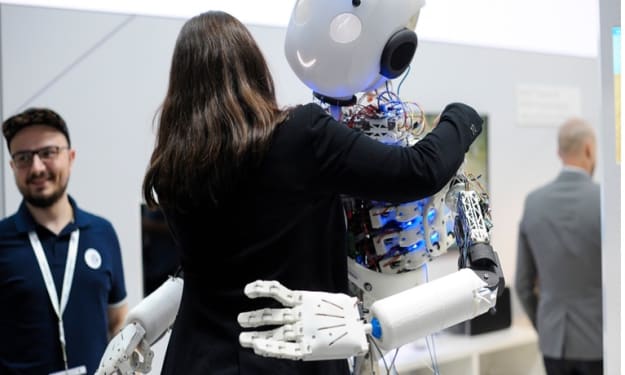The Impact of AI on Job Markets: Opportunities and Threats
Exploring the Pros and Cons of Artificial Intelligence in the Workforce: Balancing Opportunity and Risk

Introduction
Artificial Intelligence has been a buzzword for the past few years, and its impact is being felt across various industries. AI has brought about revolutionary changes in how we perform our daily tasks, from personal assistants like Siri and Alexa to self-driving cars. With its increasing capabilities, AI is fast becoming a game-changer in the business world, particularly in the job market. AI offers numerous opportunities for businesses to increase efficiency and productivity, but it also poses a threat, particularly to the job market. In this blog post, we will explore the impact of AI on job markets, the opportunities it offers and the threat it poses.
Opportunities
AI has brought about numerous opportunities, particularly in industries like healthcare, finance, education, and manufacturing. In the healthcare industry, AI has revolutionized medical diagnosis, making it quicker and more accurate. AI-powered machines can analyze medical images and provide detailed insights into possible diseases or conditions, which can be used to make informed decisions about patient care.
In the finance industry, AI can be used to analyze large volumes of data to identify potential fraudulent activity, minimizing the risk of financial loss. AI can also be used to automate tasks that are repetitive, such as data entry or document processing, freeing up employees to focus on more complex tasks that require human intelligence.
In the education industry, AI can be used to personalize learning experiences for students. By analyzing data on student performance and behavior, AI can identify areas where students need additional support or guidance, providing a more tailored approach to learning.
In the manufacturing industry, AI-powered robots can perform tasks that are dangerous, repetitive or require a high level of accuracy, minimizing the risk of human error and injury. This, in turn, increases productivity and reduces costs, making businesses more competitive in the market.
Threats
While AI offers numerous opportunities, it also poses a threat to the job market. According to a report by the World Economic Forum, around 75 million jobs worldwide may be displaced by technology by 2022. Jobs that are repetitive or require a low level of skill or education are most at risk of being automated. For example, jobs in data entry, call centers, and assembly lines are likely to be replaced by AI-powered machines.
This could lead to job losses, which could have a significant impact on the economy and society. Unemployment rates could rise, and there could be a widening gap between those who have the skills to work with AI and those who do not. This could also lead to social unrest, as people may feel that they have been replaced by machines.
What can be done?
To avoid some of the negative impacts of AI on the job market, there needs to be a shift in how we approach education and training. As AI continues to develop and become more prevalent, the skills required to work with it will change. Therefore, there needs to be a focus on providing education and training that equips people with the skills they need to work with AI.
For example, schools and universities could offer courses in data science, machine learning, and robotics, which would prepare students for roles that involve working with AI. Governments could also incentivize businesses to invest in retraining programs for employees whose jobs are at risk of being automated.
Conclusion
AI has the potential to revolutionize the job market, bringing about numerous opportunities, particularly in industries like healthcare, finance, education, and manufacturing. However, it also poses a threat, particularly to jobs that are repetitive or require a low level of skill or education. To avoid the negative impacts of AI on the job market, there needs to be a focus on education and training, equipping people with the skills they need to work with AI.
Also read: Learn How to UNLEASH THE POWER OF CHATGPT IN YOUR MARKETING PLAN





Comments
There are no comments for this story
Be the first to respond and start the conversation.